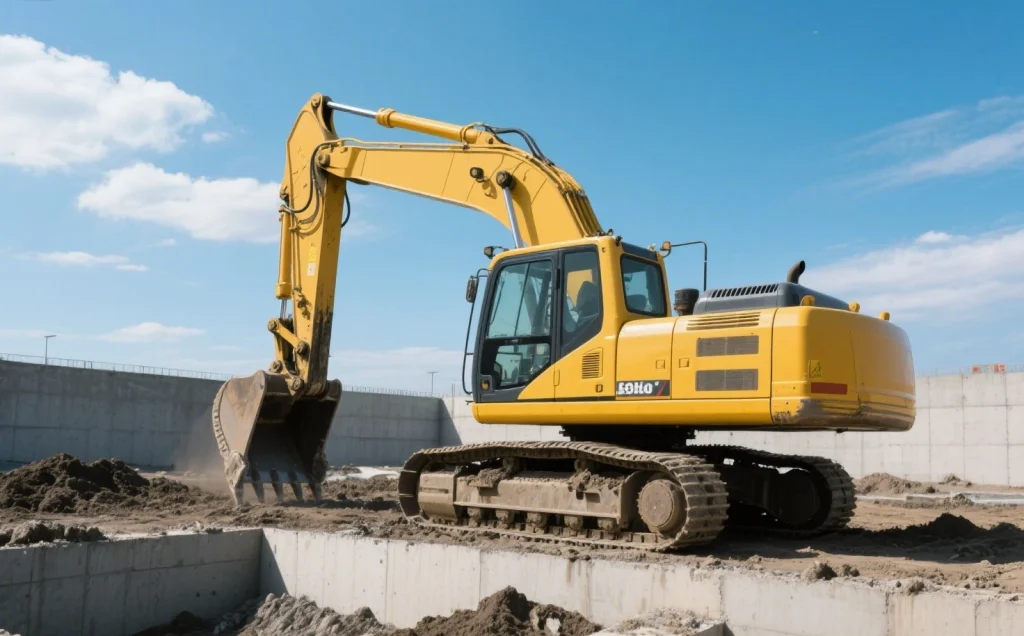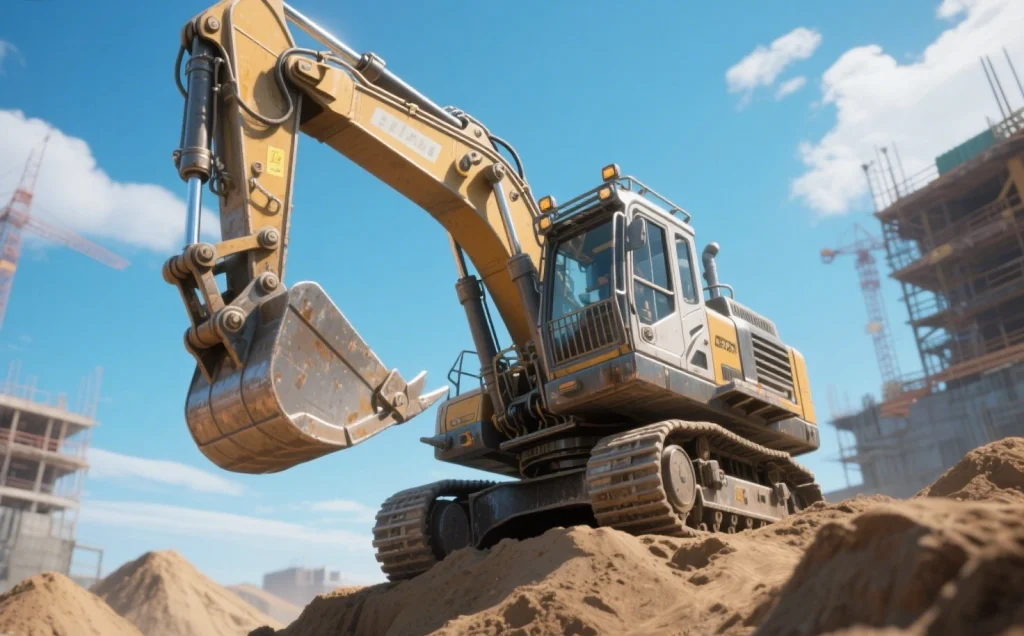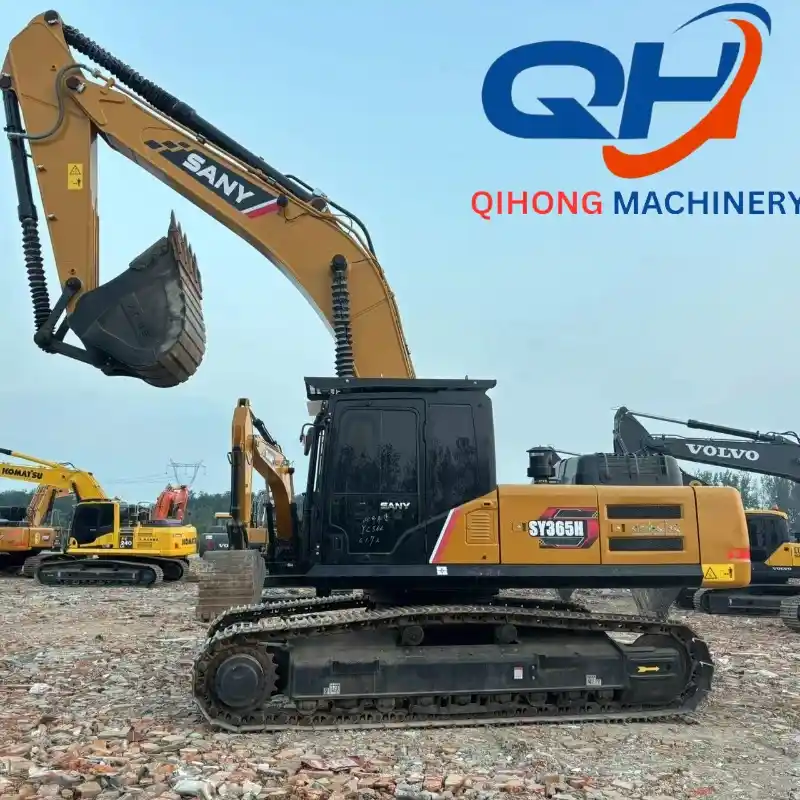Использование экскаваторов при орошении и рытье канав: повышение эффективности в сельском хозяйстве и ландшафтном дизайне
Release time: 2025-03-14
Excavators are versatile heavy machinery commonly used in construction, but they also play a vital role in agriculture, particularly in irrigation and ditching projects. These machines help streamline essential tasks like digging irrigation trenches, creating drainage systems, and controlling soil erosion. In this article, we’ll delve into the specific uses of excavators in irrigation systems and ditch digging, demonstrating how they improve efficiency in agriculture, landscaping, and land management.

How Excavators Improve Irrigation Systems
Irrigation is essential for growing healthy crops, especially in regions with unpredictable rainfall. Excavators are indispensable in the design and construction of irrigation systems by efficiently digging trenches for water pipes, channels, and drainage lines. Let’s explore how excavators contribute to modern irrigation methods and water management systems.
A. Trenching for Irrigation Pipelines
Excavators are incredibly effective for trenching, a fundamental task in irrigation system installation. By digging precise and deep trenches, excavators make it easier and faster to install irrigation pipes. These machines can quickly create trenches of varying widths and depths, minimizing labor costs and construction time. Гусеничные экскаваторы ensure that pipes are installed at the correct depth for optimal water distribution.
B. Establishing Drainage Systems
Effective water drainage is key to avoiding waterlogging and preventing crop damage. Excavators help create drainage channels and install drainage pipes, directing excess water away from crops. These machines offer high precision, ensuring proper slopes and the creation of channels that allow for efficient water runoff. Excavators are especially helpful in designing drainage systems that maintain the land’s long-term productivity.
C. Constructing Water Reservoirs and Ponds
Excavators also play a crucial role in creating water reservoirs, ponds, and retention basins used to store irrigation water. Excavators can quickly dig large water storage areas, providing farmers with a sustainable water supply during dry periods. They are also used for maintaining water bodies by removing silt and debris that can hinder water flow, helping preserve water quality for irrigation.
Excavators in Ditching and Drainage Projects
Ditching is an essential process in agriculture for controlling water flow, preventing soil erosion, and enhancing drainage. Used digger crawler equipment make ditching projects more efficient by allowing operators to dig wide, precise ditches for better water distribution and erosion control. Let’s explore how excavators are used in ditching and land management.
A. Digging Drainage Ditches
Drainage ditches are necessary for controlling excessive water and preventing flooding in agricultural fields. Excavators excel in digging long, straight, and uniform drainage channels, efficiently directing water away from crops and infrastructure. These ditches help prevent water accumulation, ensuring proper water flow for better land productivity.
B. Maintaining Irrigation Channels
Excavators are invaluable for maintaining and cleaning existing irrigation channels. Over time, sediment, silt, and debris can build up and block water flow, reducing irrigation efficiency. Excavators are used to clear these obstructions, ensuring a constant and controlled water supply. Regular maintenance with excavators keeps irrigation systems functioning at peak performance.
C. Soil Erosion Control
Excavators help combat soil erosion by creating structures like terraces, berms, and embankments that control water flow. These structures prevent the loss of fertile soil, which is crucial for maintaining crop yields. Excavators are particularly useful in stabilizing slopes and preventing runoff, helping preserve soil and water quality.
Why Excavators Are Essential for Irrigation and Ditching
Excavators bring significant advantages to irrigation and ditching projects. Their power, precision, and versatility make them essential tools for land management and water conservation efforts in agriculture. Below are the key benefits of using excavators for irrigation and ditching tasks.
A. Time and Cost Efficiency
Excavators can complete large-scale digging tasks in a fraction of the time it would take with manual labor or smaller machines. By reducing the amount of labor and time required for digging trenches, installing pipes, or creating ditches, excavators help lower overall project costs. Their efficiency makes them an invaluable tool for large irrigation and drainage projects.
B. Precision and Customization
Excavators are designed for precision digging, which is essential for creating irrigation systems and drainage structures that function optimally. With various attachments, excavators can adjust trench width, depth, and slope according to specific project requirements. This accuracy ensures that water is distributed evenly and drainage systems are set up to prevent flooding or water stagnation.
C. Versatility in Agricultural Projects
Excavators are not limited to just digging tasks—they can also be used for grading, lifting, hauling, and compacting. This versatility allows excavators to perform a variety of functions within irrigation and ditching projects, reducing the need for multiple machines. By handling multiple tasks, excavators help streamline agricultural projects and improve overall efficiency.
D. Reduced Environmental Impact
Excavators are designed to minimize environmental disruption compared to older, more traditional methods. Modern excavators are fuel-efficient and can operate with minimal soil disturbance. Their controlled and precise movements allow for sustainable land management, which is crucial for preserving soil health, protecting water resources, and maintaining ecosystem integrity.

Заключение
Excavators are indispensable for both irrigation systems and ditching projects, offering unmatched efficiency and versatility. From digging trenches for water pipelines to creating drainage ditches and ponds, such us second hand excavators play a critical role in land and water management for agriculture. Their ability to reduce labor costs, ensure precise digging, and streamline various tasks makes them essential for modern farming practices.
By incorporating excavators into irrigation and ditching projects, farmers and landowners can improve water management, control soil erosion, and boost agricultural productivity. With growing concerns about water conservation and land sustainability, excavators are a key tool in the future of farming and landscaping.


